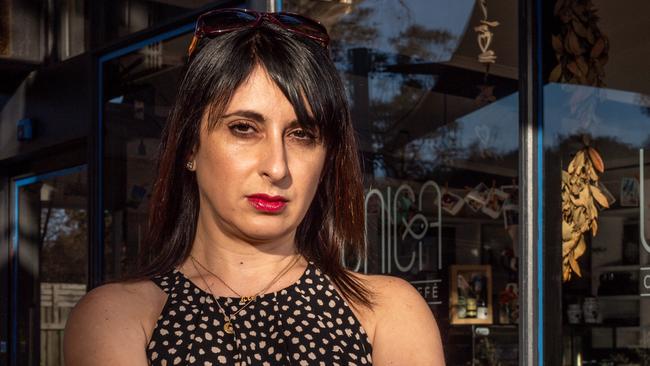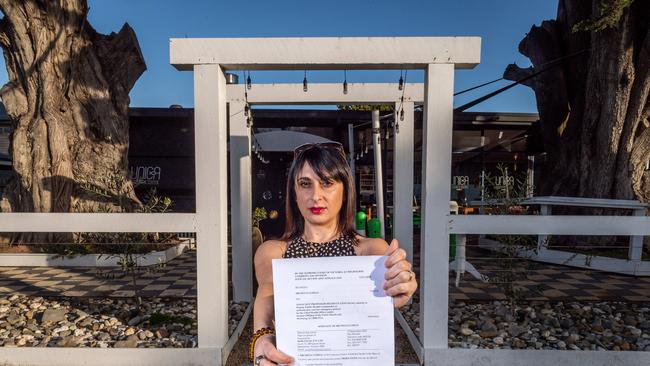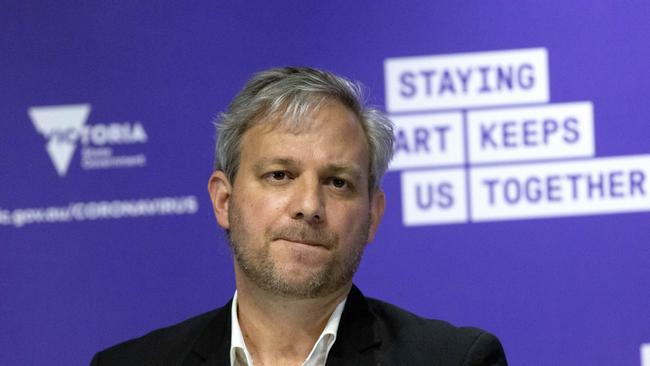Anti-curfew lawsuit fails in Victorian Supreme Court
A lawsuit challenging the legality of Victoria’s former curfew has failed — but a judge still had some choice words for the state government.

A lawsuit challenging the legality of Victoria’s former curfew has failed.
Judge Timothy Ginnane said on Monday the curfew was “proportionate” considering its aim of tackling the state’s second wave of COVID-19.
The lawsuit was brought by Mornington Peninsula cafe owner, and Liberal Party member, Michelle Loielo.
It named the public servant who signed the curfew directive, then Deputy Public Health Commander Michelle Giles.
Ms Loielo, a widowed mum-of-three, had told the court her human rights were breached by the strict measure.
But Justice Ginnane dismissed the argument in an online sitting of the Supreme Court of Victoria on Monday.
“Ultimately I have decided that taking into account the purpose of the emergency powers, Professor Giles’ evidence has established the limitation on and restrictions on human rights caused by the curfew were proportionate to the purpose of protecting public health,” he said.
He said the curfew was a major restriction on human rights — but a legal one.

“The curfew was a major restriction of human rights and liberties of the free people of Victoria,” he said.
“No instance of a curfew being imposed in Victoria by the executive exists in living memory.
“Human rights are of importance even in urgent or emergency situations — if governments and executives can disregard them, they are not rights of any real value.
“Even in an emergency, Victoria is a society of laws and any executive decrees must be made in accordance with law.”
He said he was satisfied Ms Giles gave human rights “real consideration” when signing off on the curfew.
But ultimately, she believed it was justifiable to stop COVID-19 and protect public health.
“In the emergency circumstances presented by the second wave of the pandemic, that there were no other reasonably available means to achieve that purpose,” he said.
The curfew was introduced on August 2 as a COVID-19 prevention measure and extended by Prof Giles from September 14, when it went from 8pm to 5am, to 9pm to 5am.
It was retracted as a measure on September 28 — five hours before the trial began.
But Ms Loielo was still asking the court to declare it was never legal.
Her lawyers argued the measure was unreasonable, illogical and irrational.
But Justice Ginnane said the curfew was “within the range of reasonable decisions that could be made”.
He also criticised the Department of Health and Human Services, commenting that despite a court request for government lawyers to clarify its organisational structure, it remained “unclear” to him.

“There can be legitimate debate about whether a public servant in Giles’ position, who is not the Minister, the Department Secretary or the Chief Health Officer, should be exercising an emergency executive power that may close down much of the state,” he said.
“One argument would be that such a decision should be made by the minister, who is responsible to parliament and therefore to the public.
“Giles was appointed an authorised officer by Adjunct Clinical Professor Brett Sutton, who is the Chief Health Officer.
“It was unclear why Giles was chosen or why, for instance, Sutton did not make these directions himself.”
Justice Ginnane will consider if Ms Loielo must pay the state’s costs in the lawsuit.


